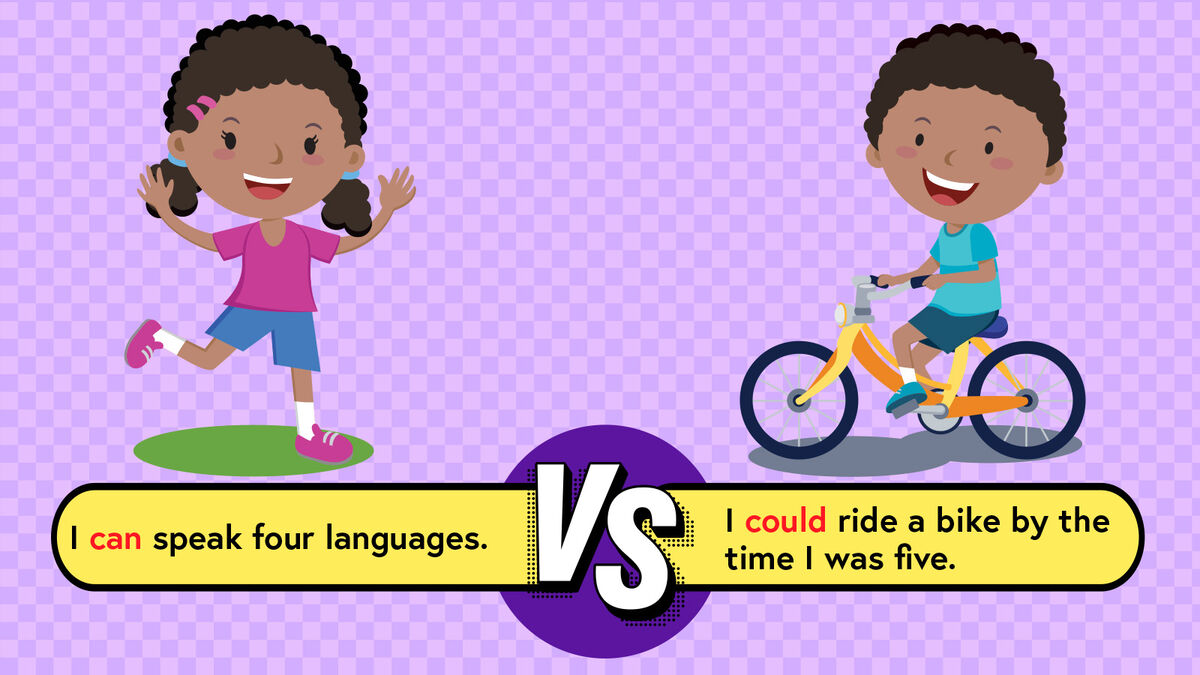
Avoid an embarrassing grammar mistake by learning when to use can vs. could in different situations. While both can and could are forms of the same verb, they actually mean different things depending on the context. Keep these guidelines and examples in mind.
When to Use Can
Can is an auxiliary verb, which means it helps clarify the meaning of a second verb. Also called a helping verb, can often indicates that the other verb is possible.
Can for Ability or Possibility
Can usually shows something may happen or is able to happen, as you can see by these examples:
- We can find a prom dress to fit you.
- The weather can be rainy in that part of the country.
- I can speak four languages.
Can for Requests
You can also use can to make a request, as these examples show:
- Can you help me finish this?
- Can you open your math books to page 50?
- Can you call me back in an hour?
Colloquial Use of Can for Permission
You can also use can colloquially for permission, even though it’s correct to use the verb may. Can sounds less formal, particularly in speech. In writing or in more formal speaking situations, it’s better to use may.
- Can I go get a drink of water?
- My mom says I can go over to Jenny’s house.
- Can I ask you something?
When to Use Could
Once you understand the basic can grammar rules, you’re part way there. The confusion comes in when you think about when to use could.
Could for Past Ability or Possibility
In many situations, could is the past tense of can. It indicates something that was possible in the past.
- We could have used that money to buy lunch.
- I could ride a bike by the time I was five.
- He could be really mean sometimes.
Could for Requests
Like can, could also works for requests. Here’s how to use it:
- Could you show me how to address this letter?
- Could you please be quiet?
- Could you hold this for a minute?
Informal Use of Could for Permission
Like can,you can also use could to indicate permission. While may or might would be technically correct, could can be a slightly more formal version of can. It can also indicate the past tense of can in this situation.
- He said I could have a balloon.
- Could I use your restroom?
- Could I please get your signature on this petition?
Could for Conditional Future Scenarios
A less common way to use could involves future scenarios that might happen. This is called a conditional sentence, and you use the past tense when you write it. These usually start with if, but sometimes, they also involve “I wish.” Here are some examples with could used in this way:
- If he bothered to ask me to the dance, I could give him my answer.
- I wish I could have known my grandfather.
- If we went to the store, we could buy everything we need for a special dinner.
How Likely Is It to Happen?
When you’re talking about the future, use of can and could tells the reader or listener how likely something is to happen. In many cases, can expresses that something is certain, while could indicates it may or may not happen.
For instance, imagine you are saving money to buy a new car. When you talk about your plans, can sounds much more certain than could.
- I can buy a new car in January because I will have enough money by then.
- I could buy a new car in January because I will have enough money by then.
Easy to Use Correctly
Although they may seem complicated at first, can and could are easy to use correctly once you know the rules. Understanding this type of basic English grammar helps improve your writing, and it gives you the confidence to express yourself.